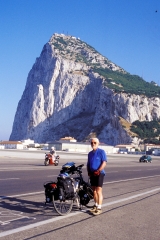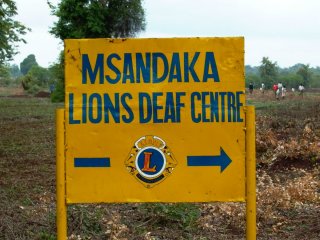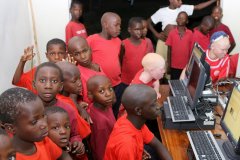My involvement in social projects started at the end of the ’70-ties. As of 1979 I was involved in projects of the Deutsche Tibet Hilfe in Ladakh (India). So far I have been the godfather of four Tibetan refugee children . Rigzin Samphel, a boy, finished in 1986 with my financial support the primary education in the Lamdon School in Leh. Tashi Gambe, again a boy, finished school in 1992 and Tundop Namgail, my third boy, finished the primary and secondary in the same school in 2002. In that same year I have started to support Tashi Dolkar, a Tibetan refugee girl in the Children’s Village in Dharamsala. Tashi has graduated in the high school in spring 2014 in the section science with biology being her main subject. She (and indeed me too) regretted that, having the status of a refugee, she had no access to one of the universities in India. For that reason and as a second-best solution, she started in September 2014 with my support a four year’s training program for nurse in Bangalore. Four years later, in 2018 she finished her studies with distinction. Her results were so good that the hospital where she had been trained, offered her straightaway a job. I am really very proud of her.
After my retirement from the EU-Commission in mid-1999 I was able to make a useful link between my passion for long-distance biking tours and the need to raise funds for social projects I wanted to support. It all started in August/September 1999 with my very first biking tour to Santiago de Compostela. The funds raised with this tour made it possible for Lions Club IJsedal Tervuren to finance the special needs of Poverello-Brussels, an organisation providing food to homeless people, for an entire year. These funds enabled the organisation to continue to provide food to the homeless during the times when their traditional stocks fell short.
The biking tour in 2000 to Rome and Athens was used in 2001 for fund raising for the construction and the purchase of the necessary furniture for a classroom for 13 young speaking- and hearing-impaired children at the Msandaka Lions Deaf Centre in Moshi (Tanzania). LC IJsedal Tervuren and LC Moshi Kibo worked very closely together on this project.
Soon after the first classroom at Msandaka was opened in 2001, it became apparent that there were many more speaking- and hearing-impaired children in Moshi (some 120!). Therefore, considerable additional efforts were made and within the last 18 years Msandaka has grown from a small project with 13 learners to a full fledged centre for speaking- and hearing-impaired children with at present 106 learners.
The Msandaka Deaf Centre was built on a plot of land of 4 acres (16.000 m²) and in 2017 it included:
- 13 classrooms
- 1 workshop for vocational training
- 1 computer classroom with 20 refurbished pc’s
- 1 multi-purpose hall
- 4 dormitories
- 1 well-equipped kitchen,
- 1 administrative building and
- 1 cowshed
In 2018 fundraising started to extend the Msandaka Primary School with a Vocational Training Centre (VTC). The purpose is to offer the children who obtained their grade 7 certificate the possibility to learn one of the following six professions: farming (agriculture and animal husbandry), tailoring, carpentry, plumbing, arts and crafts making and information technology (installing software, electronic equipment repair, recycling of e-waste etc.). The construction works for in total six new buildings and the rehabilitation of three existing buildings started in March 2020. They consist of three classrooms, one large workshop, an administrative building, two dormitories for young adult boys and girls, a sanitary block and a food storage. The Municipality of the Moshi have appointed six teachers who master sign language.
With the help of sponsors of another biking tour (my 2nd 100 Cols tour in France in 2005) another project for handicapped children was set up in Moshi. At the primary and secondary Mwereni School in Moshi there are about 800 learners, of which some 100 are blind or visual impaired learners. For this school a specific computer building with two classrooms was constructed. In one classroom 25 computers were made available for the non-handicapped learners and in the other classroom five highly specialised computers with very expensive braille keyboards, adapted software, amplifiers and very large screens (26 inch) were installed.
In 2012 another important project was realised in Mwanza at Lake Victoria near the border with Uganda.
35 high quality reconditioned computers were shipped by the KLM to Kilimanjaro Airport from where the computers were transported by members of Lions Club Moshi Kibo to the Misungwai School in Mwanza. Almost 1.400 learners now have access to IT-training in the computer classroom of this School. Of the total number of learners about 30% of them are impaired ( 50 deaf, 121 albino, 24 low vision, 61 blind and 156 are orphans).My many professional and private trips to the different ends of this world gave me many opportunities to be socially active. Allow me to briefly list some of these activities here:
- donations of sometimes large quantities of medication and dressing material (in alphabetic order) to Angola, India (Calcutta and Ladakh), Malawi, Mozambique, Namibia, Nepal, Peru, Romania, Senegal, Tanzania (many times) and South-Africa;
- construction in 1980 of a water pipe of approx. 3 km from a natural water source to the Lamdon School in Leh (Ladakh) with about 200 Tibetan refugee children at that time;
- collection, transport and distribution in 1988 of six used wheelchairs for Senegal;
- handing out of 1.000 baby cloths in Malawi to Mozambican mothers who had fled the civil war with their children;
- school material and medication for refugees in Maputo;
- school material for children in Nepal;
- a 20-feet container with medication and dressing material for India;
- facilitating the transport by sea in 1998 from Antwerp to Dar Es Salaam of a container with three used ambulance vans for a hospital in Malawi;
- the construction in 2000 of a sanitary block with eight toilets in a home in Kathmandu (Nepal) where some 100 poor, often sick and single elderly people were given a very modest shelter in the last weeks/months of their lives;
- furnishing in 2007 of three computer classrooms for Tibetan refugee children in Leh and the Nubra Valley in Ladakh close to the Chinese border;
- financial and support in kind for a Maasai orphan girl in Tanzania who became blind at the age of 14 old after having taken medication against tuberculosis in her brains. She was able to finish in 2019 her high school education in a school for blind and visual impaired young adults in Longido near the border with Kenya.;
- initiative and participation in a mission of the Belgian NGO See & Smile to Tanzania where five ophthalmologists and three dentists provided free of charge more than 2.000 poor people (including many Maasais) medical care. More than 140 cataract operations were performed and about 750 molars were removed.



